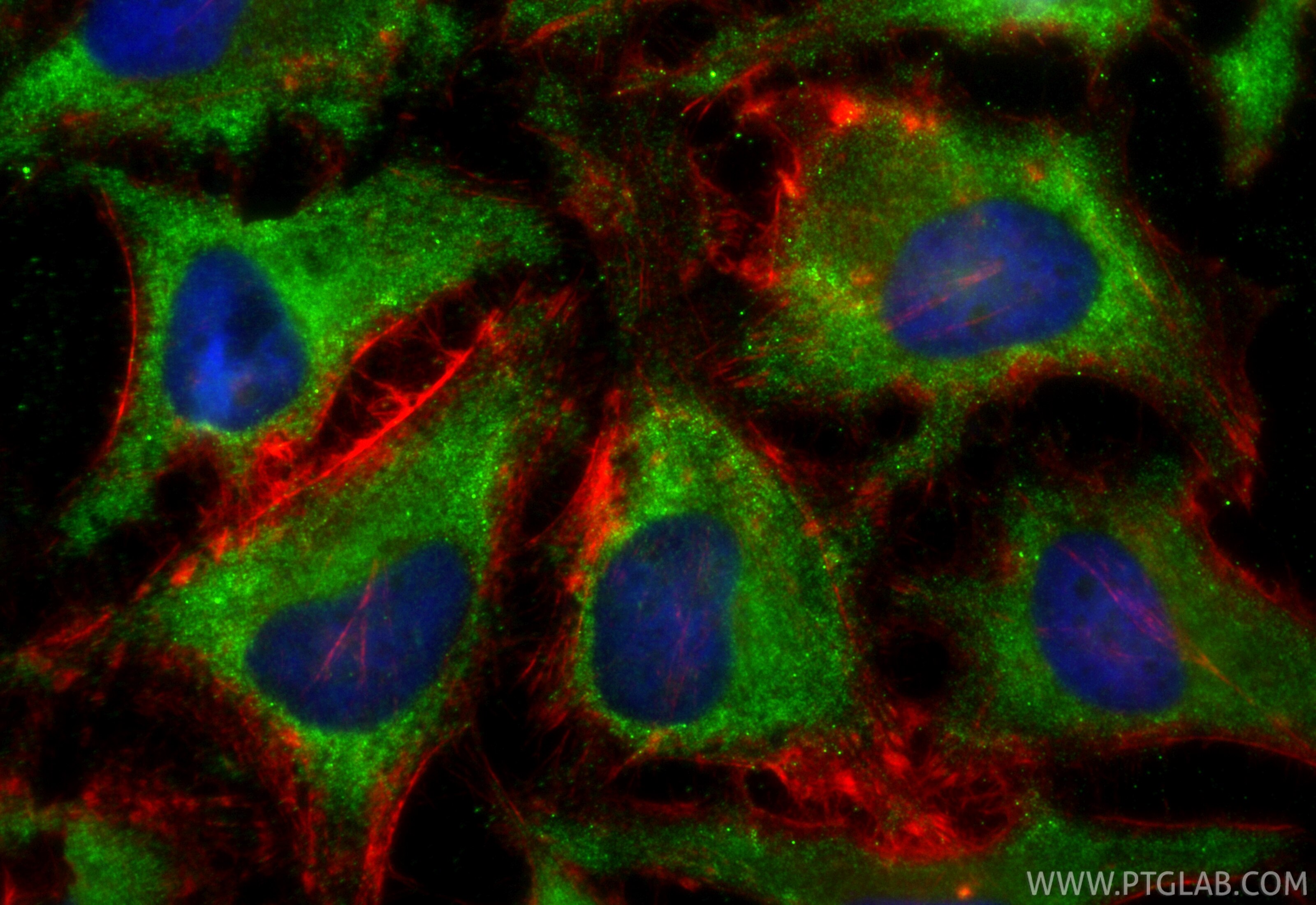Tested Applications
| Positive IF/ICC detected in | HeLa cells |
Recommended dilution
| Application | Dilution |
|---|---|
| Immunofluorescence (IF)/ICC | IF/ICC : 1:50-1:500 |
| It is recommended that this reagent should be titrated in each testing system to obtain optimal results. | |
| Sample-dependent, Check data in validation data gallery. | |
Product Information
CL488-84672-2 targets FSTL1 in IF/ICC applications and shows reactivity with human samples.
| Tested Reactivity | human |
| Host / Isotype | Rabbit / IgG |
| Class | Recombinant |
| Type | Antibody |
| Immunogen |
CatNo: Ag33795 Product name: Recombinant human FSTL1 protein Source: e coli.-derived, PET28a Tag: 6*His Domain: 1-308 aa of BC000055 Sequence: MWKRWLALALALVAVAWVRAEEELRSKSKICANVFCGAGRECAVTEKGEPTCLCIEQCKPHKRPVCGSNGKTYLNHCELHRDACLTGSKIQVDYDGHCKEKKSVSPSASPVVCYQSNRDELRRRIIQWLEAEIIPDGWFSKGSNYSEILDKYFKNFDNGDSRLDSSEFLKFVEQNETAINITTYPDQENNKLLRGLCVDALIELSDENADWKLSFQEFLKCLNPSFNPPEKKCALEDETYADGAETEVDCNRCVCACGNWVCTAMTCDGKNQKGAQTQTEEEMTRYVQELQKHQETAEKTKRVSTKEI Predict reactive species |
| Full Name | follistatin-like 1 |
| Calculated Molecular Weight | 308 aa, 35 kDa |
| GenBank Accession Number | BC000055 |
| Gene Symbol | FSTL1 |
| Gene ID (NCBI) | 11167 |
| Conjugate | CoraLite® Plus 488 Fluorescent Dye |
| Excitation/Emission Maxima Wavelengths | 493 nm / 522 nm |
| Form | Liquid |
| Purification Method | Protein A purification |
| UNIPROT ID | Q12841 |
| Storage Buffer | PBS with 50% glycerol, 0.05% Proclin300, 0.5% BSA, pH 7.3. |
| Storage Conditions | Store at -20°C. Avoid exposure to light. Stable for one year after shipment. Aliquoting is unnecessary for -20oC storage. |
Background Information
Follistatin-like protein 1 (FSTL1) is a secreted glycoprotein predominantly produced by mesenchymal cells. It is highly expressed during tissue fibrosis and plays a significant role in various pathological conditions, including inflammation, fibrosis, and immune regulation. It functions as a matricellular protein, interacting with extracellular matrix components and modulating cell-matrix interactions. FSTL1 is involved in multiple biological processes, such as cell proliferation, apoptosis, metabolism, differentiation, and immune response.
Protocols
| Product Specific Protocols | |
|---|---|
| IF protocol for CL Plus 488 FSTL1 antibody CL488-84672-2 | Download protocol |
| Standard Protocols | |
|---|---|
| Click here to view our Standard Protocols |




